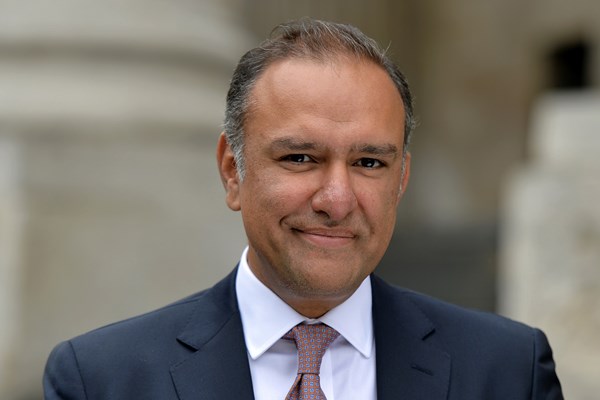31 March 2025
Over the past several years, the Middle East has become a magnet for global investment management firms. Dubai, Abu Dhabi and Riyadh are emerging as key hubs—not just for regional work, but as full-blown outposts in a global strategy. Several trends and policy shifts explain why this is happening now, and what to expect going forward.
Why It’s Happening?
1. Ambitious national strategies & regulatory reform
Saudi Arabia’s Vision 2030 is a centerpiece: the Kingdom is diversifying away from oil dependency, boosting non-oil sectors, encouraging foreign direct investment, and reforming its regulatory and legal frameworks.[1]
The UAE similarly has developed its financial free zones — especially DIFC (Dubai International Financial Centre) and ADGM (Abu Dhabi Global Market) — which boast relatively advanced legal, governance and regulatory frameworks, more aligned with international norms.[2]
2. Pro-investment environments: incentives, tax, ease of doing business
Zero or very low tax regimes, favorable visa policies, incentives for foreign firms, and simplified company-setup procedures are significant pull factors. Firms get access to attractive local environments to base operations, hire talent, and service regional clients.[3]
3. Growing local & regional demand for asset management services
Wealth is increasing in the GCC via sovereign wealth funds, high-net-worth individuals (HNWIs), family offices, and institutional clients (pensions, etc.). These clients increasingly want sophisticated investment solutions: private markets, alternative investments, fixed income, equity, Islamic finance, real assets. Local governments are facilitating this demand by allowing foreign asset managers to get licenses, distribute funds locally, and access new client segments.[4]
4. Improved regulatory/distribution channels and fund rules
In Saudi Arabia, recent amendments to investment fund regulations (IFRs) and distribution-platform rules allow better digital/fund-platform/distribution via fintech, electronic platforms and broader reach.[5]
Also, foreign firms are being given more leeway, e.g. under a single rule-book in some jurisdictions, easing cross-border and cross-jurisdictional obstacles.[6]
5. Strategic geography, time zone & geopolitical positioning
The Middle East is at the crossroads between Asia, Europe, and Africa. Firms located there can more easily serve clients in those regions. Time zones are favourable: overlapping business hours with Asia in the morning, Europe in the early day, and the Americas in late afternoon/after hours. Stability (especially in places with matured regulatory regimes) helps. Moreover, political ambitions (and state-backed capital) mean there is both opportunity and sometimes pressure to be present locally.[7]
6. Competition between regional hubs
The UAE (particularly Dubai/Abu Dhabi) has been the regional financial leader for years, but Saudi Arabia is pushing hard to catch up: attracting international asset managers, improving licensing regimes, offering incentives, expanding the size of its markets. There's a competitive dynamic that tends to accelerate reform, enhance infrastructure, and increase the standard of services.[8]
How does AMC see the outlook for the region over the coming years?
1. Continued expansion of regional offices & localized product offerings
Expect more global asset managers to open offices in Riyadh, ADGM, DIFC etc., not just as sales/distribution arms, but as locally licensed entities that can manage/regulate funds, hire local investment talent, and offer products tailored for the Middle East (Islamic finance, sukuk, Shariah-compliant portfolios etc.).
2. More regulation & investor protection (and convergence with global standards)
As more firms enter, regulators will likely increase oversight, introduce more robust reporting and governance requirements, risk management, valuation practices etc. Some jurisdictions will align more closely with international benchmarks (US, UK, EU) to maintain credibility and attract more foreign capital.
3. Digital / fintech platforms will play a growing role
Distribution via digital platforms, mobile apps, investment fund distribution platforms (including via licensed fintech/e-money institutions) will become more common, especially to reach HNWIs, family offices, expatriate communities. Saudi Arabia’s recent permission for digital distribution is one signal.[9]
4. Talent migration & ecosystem build-out
To sustain this growth, countries will have to attract investment professionals, legal, compliance, risk, operations staff. We'll see competing offers of residency/visa/tax benefits for financial talent. Also growth in supporting sectors: fund administrators, custodians, legal & audit firms, compliance/regulation advisory.
5. Product innovation & adaptation
Given differing investor preferences, there will be product innovation: Shariah-compliant funds; funds with local content or regional exposure; fixed income (sukuk), Islamic private equity; environmental, social, governance (ESG) themed funds; infrastructure; real assets; private credit; local real estate funds. In addition, more semi-liquid or hybrid fund structures may be introduced where liquidity is a concern.
6. Increasing competition & potential saturation risks
As more firms enter, competition for mandates, fees, talent, and for attracting the best deals will grow. Some jurisdictions may overreach or introduce rules that make things complex. Also, political/regulatory risk remains (geopolitical tensions, regulation changes, human rights / ESG scrutiny, etc.)—these could be headwinds.
The movement of international investment management firms into Dubai, Abu Dhabi, and Riyadh is not a fad. It is the product of intentional policy reforms, rising local investor demand, favourable tax and regulatory settings, and the region’s strategic location. Over the next 5-10 years, these hubs are likely to become even more central in global asset management networks. But the winners will be those who combine global expertise with local knowledge: firms that can navigate local rules, build trusted local relationships, adapt products, maintain transparency, attract talent, and manage regulatory and political risk.
[1] https://www.cfainstitute.org/insights/articles/family-offices-middle-east-expansion
[2] https://www.sidley.com/en/insights/newsupdates/2024/09/opportunities-for-asset-managers-looking-to-set-up-in-the-united-arab-emirates
[3] https://outboundinvestment.com/why-wealth-managers-are-moving-to-dubai-the-uaes-rise-as-a-1-5-trillion-wealth-hub
[4] https://www.cfainstitute.org/insights/articles/family-offices-middle-east-expansion
[5] https://www.kslaw.com/news-and-insights/the-capital-market-authority-issues-key-regulatory-enhancements-impacting-investment-funds-in-the-kingdom-of-saudi-arabia
[6] https://www.skadden.com/insights/publications/2025/01/sovereign-wealth-funds-and-liberalized-rules
[7] https://www.sidley.com/en/insights/newsupdates/2024/09/opportunities-for-asset-managers-looking-to-set-up-in-the-united-arab-emirates
[8] https://www.stimson.org/2025/saudi-arabia-and-the-uae-compete-to-be-hubs-for-regional-business
[9] https://www.kslaw.com/news-and-insights/the-capital-market-authority-issues-key-regulatory-enhancements-impacting-investment-funds-in-the-kingdom-of-saudi-arabia
AMC would be delighted to discuss this space in more detail. If so, please contact Navin Raina.
